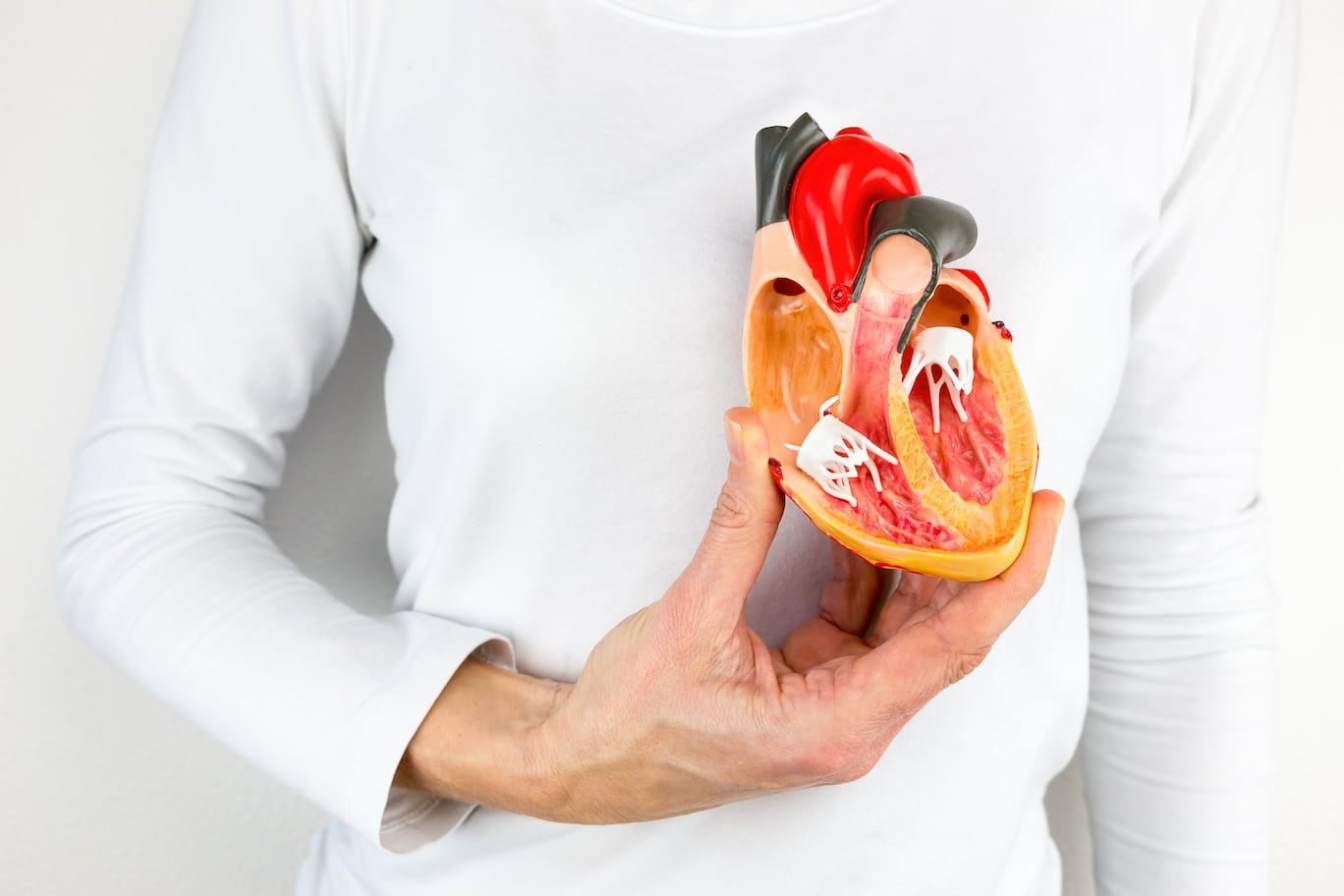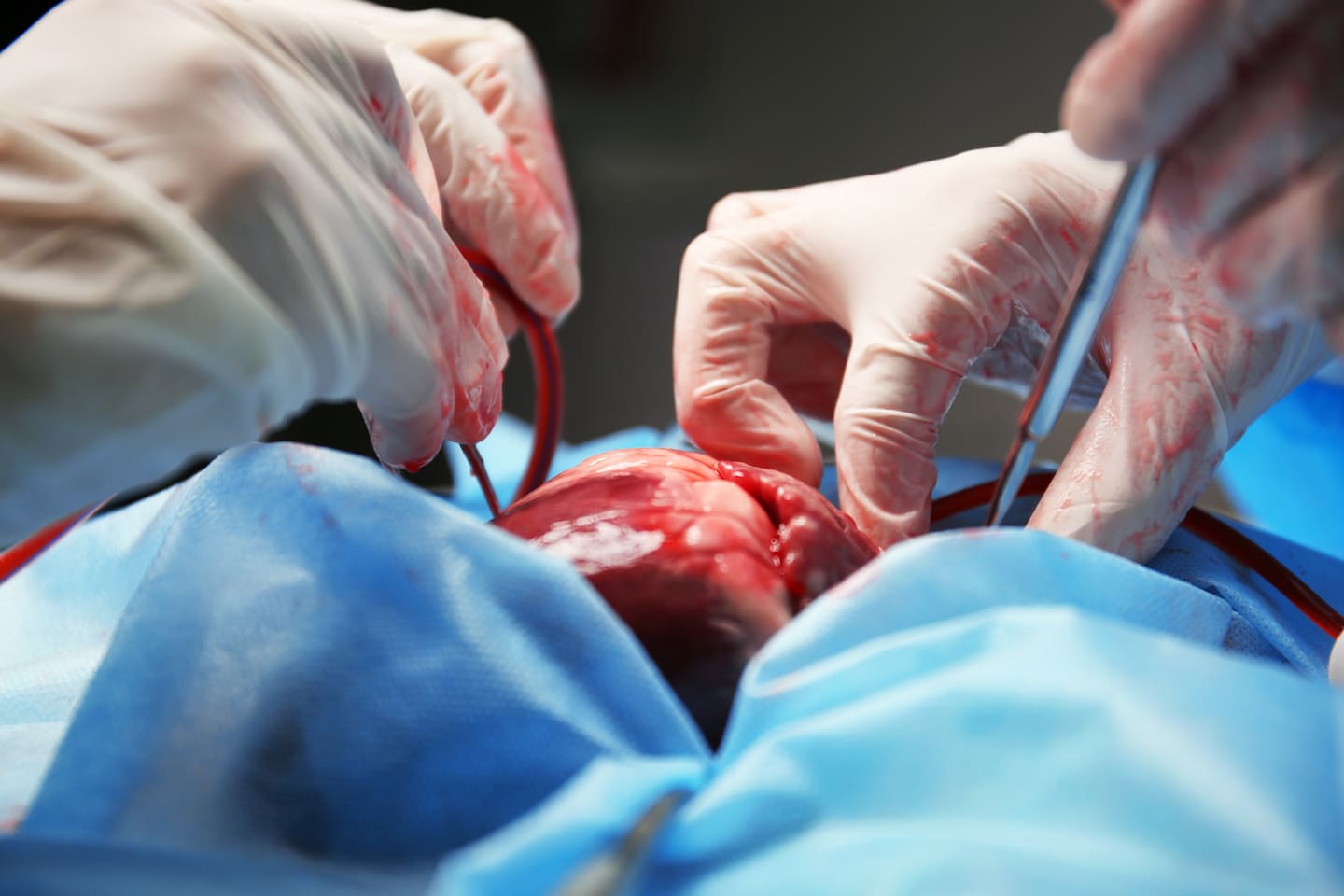Balloon Valvuloplasty in Turkey
Healthy Türkiye helps you find the best balloon valvuloplasty in Turkey at affordable prices and adopts a 360-degree service approach in all areas of health through affiliated hospitals.
- Medical Treatment
- Cardiac Surgery in Turkey
- Balloon Valvuloplasty in Turkey
- Coronary Angiography in Turkey
- Heart Bypass Surgery in Turkey
- Pediatric Cardiac Surgery in Turkey
- Aortic Aneurysm Surgery in Turkey
- Atherectomy in Turkey
- Cardiac Ablation Treatment in Turkey
- Carotid Endarterectomy in Turkey
- Coronary Angioplasty in Turkey
- DOR Procedure in Turkey
- Open Heart Surgery in Turkey
- Pacemaker Implantation in Turkey
- Valve Replacement in Turkey
- Defibrillator Implant Surgery in Turkey
- Transmyocardial Revascularization in Turkey
- Transcatheter Aortic Valve Replacement in Turkey
- Homepage
- Medical Treatment
- Balloon Valvuloplasty in Turkey

About Balloon Valvuloplasty in Turkey
In Turkey, used to expand insufficient aortic and mitral valves, balloon valvuloplasty is an effective treatment for aortic, mitral, and pulmonary stenosis, all of which contribute to blood flow restriction. In many cases, it is often a preferred alternative to open heart surgery and heart valve replacement. Balloon valvuloplasty can be performed in both children and adults who have aortic stenosis and have not responded to nonsurgical treatments.
A catheter with a deflated balloon at its tip is threaded through an artery or vein into the heart. The catheter is positioned inside the narrowed valve, then the balloon is inflated. As the balloon expands, it stretches the narrowed valve, separating the valve leaflets and helping the valve move better. When the balloon is deflated and removed, blood flows more quickly through the treated valve. This condition reduces the work required of your heart to push blood through the valve.
With a recognized cardiology program, Healthy Türkiye is a leader in minimally invasive procedures for the heart. Our multidisciplinary team of specialists will work together with you to understand your condition and determine if balloon valvuloplasty is the best treatment option for your specific case.

Balloon Valvuloplasty Procedure in Turkey
Balloon valvuloplasty is a surgery performed in the cardiac catheterization laboratory to treat stenotic or narrowed heart valves. Normal valves (aortic, mitral, tricuspid, and pulmonic) comprise two or three pliable tissue leaflets which open and close to modulate blood flow through your heart.
Valves can become narrowed because of age-related degeneration, rheumatic disease, or because of genetic abnormalities. When narrowing occurs, this places strain on the heart, which can cause symptoms such as shortness of breath or leg swelling. For some people, valvuloplasty is an alternative to open heart surgery for treating a hardened, narrowed heart valve (heart valve stenosis)
Balloon valvuloplasty in Turkey, also called balloon valvotomy, is a minimally invasive surgical procedure performed by highly skilled interventional cardiologists at Healthy Türkiye.
Why Might I Need Balloon Valvuloplasty in Turkey?
Balloon valvuloplasty in Turkey may be done to open a heart valve that has become stiff. But, not all conditions in which a heart valve becomes stiff are treatable with balloon valvuloplasty.
If the heart valves become damaged or diseased, they can not work properly. Conditions that can cause problems with the heart valves are valvular stenosis (stiffened valve) and valvular regurgitation (leaky valve). When valves become stiff, the heart muscle must work harder to pump the blood through the valve. Stiff valves may be caused by infection, birth defects, and aging. If one or more valves become leaky, blood leaks backward, and less blood is pumped in the proper direction.
Heart valve disease may cause the following signs:
Dizziness
Palpitations
Chest pain
Trouble breathing
Edema of the feet, ankles, or abdomen
Rapid weight gain due to fluid retention
However, there may be other reasons for your doctor to recommend a balloon valvuloplasty.
Advantages of a Balloon Valvuloplasty
Valvuloplasty increases blood flow and helps the heart work more efficiently. Balloon valvuloplasty may help postpone or avoid valve replacement. Balloon valvuloplasty is a minimally invasive procedure in Turkey. Compared to open heart surgery, the advantages of minimally invasive heart treatments can include:
Faster recovery.
Less scarring.
Lower risk of complications.
Reduced pain.
However, balloon valvuloplasty is not an alternative to surgery when it is indicated by your healthcare provider.

We Care About Your Health
Healthy Türkiye provides the best for your health and comfort. You will feel privileged with us.
7/24 Quality Personal Assistance Throughout Your Journey
Customizable for You All-Inclusive Packages
Get the Right Advice for your Health
Types of Balloon Valvuloplasty in Turkey
There are two main types of balloon valvuloplasty.
Balloon Mitral Valvuloplasty (BMV): Patients who have been diagnosed with mitral valve stenosis, high-risk aortic stenosis, or certain blockages of the pulmonic valve can benefit from balloon valvuloplasty. The valvular obstructions are relieved using highly specialized balloon catheters. A balloon is threaded into the heart through the vein in the groin and temporarily expanded across the narrowed valve. The aim of this procedure is to enhance blood flow across the mitral valve.
Balloon Aortic Valvuloplasty (BAV): Balloon aortic valvuloplasty (BAV) in conjunction with optimal medical management remains a safe and feasible treatment option. Turkey’s interventional cardiologists perform BAV in severe aortic stenosis patients, who require urgent non-cardiac surgery and as a bridge to transcatheter or surgical aortic valve replacement in decompensated patients who cannot tolerate more definitive therapy.
Prepare Balloon Valvuloplasty in Turkey
Before your procedure, the doctors will ask you to come to the pre-admission clinic two to three weeks beforehand to check your general health and fitness and will do some blood tests and also a test for MRSA. Once your health checks are complete, they will confirm your admission date.
You should make sure to bring all your medication with you to the pre-admission clinic, and a cardiology specialist pharmacist will give you advice about your medication at the clinic. There are some drugs that you will need to stop taking before you have a balloon valvuloplasty in Turkey:
Warfarin (stop taking this three days before your procedure)
New oral anticoagulation drugs (NOACs) (you should stop taking these 48 hours before the procedure)
Pradaxa (dabigatran)
Xarelto (rivaroxaban)
Eliquis (apixaban)
You can keep taking any other medication you are taking.
Also, if you smoke, try to stop completely several weeks before your procedure, as this reduces the risk of breathing problems and helps make the procedure safer.

How Is Balloon Valvuloplasty in Turkey Performed?
In Turkey balloon valvuloplasty procedure, your doctor will put a cannula into a vein, which will help to deliver fluids and medication. A physiologist will put electrodes on your chest, and these are attached to a heart monitor. You will then be given a local anesthetic on the top of your leg and once your skin is numb, two sheaths will be inserted, one will go into an artery and the other into a vein. A pacing wire is then inserted into the sheath in the vein which passes into your heart, which the doctor will use to increase your heart rate.
The doctor increases your heart rate because this reduces your blood pressure and how hard your heart has to work, which makes the BV easier to do. A catheter with a balloon attached is threaded into the sheath inserted into the artery and through to your heart, which the doctor will be guided by using fluoroscopy. Once the catheter is in place, it may have some dye is injected so that your arteries and aortic valve show up more clearly on the X-ray.
It is completely normal to experience a flushing sensation, experience a salty or metallic taste in your mouth, or get a headache, but this generally only lasts for a few moments. Your doctor will then inflate the balloon to open up the valve, and this may be repeated up to three times. When the balloon is inflated, you might feel dizzy or uncomfortable but you should feel better quickly. After inflating the balloon, your doctor will take out the catheter, balloon, and pacing wire. The doctor will then seal up the small incision where the sheath was inserted with an angioseal, which is then absorbed by the body over 90 days.
After Balloon Valvuloplasty in Turkey
After the procedure, you are taken to the recovery room for observation or returned to your hospital room. You should remain flat in bed for several hours after the procedure. The nurse will monitor your vital signs, the insertion site, and circulation and sensation in the affected leg or arm.
You should tell the nurse right away if you feel any chest pain or tightness, or any other pain, as well as any feelings of warmth, bleeding, or pain at the insertion site in your leg or arm. Bed rest may vary from 2 to 6 hours depending on your condition. If the doctor placed a closure device, your bed rest may be of shorter duration.
In some cases, the sheath or introducer may be left in the insertion area, if so, your period of bed rest will be longer. After the sheath is removed, you can be given a light meal. You may be a drug for pain or discomfort related to the insertion site or having to lie flat and still for a prolonged period. You will be encouraged to drink water and other fluids to help flush the contrast dye from the body. Also, you may feel the urge to urinate often because of the effects of the contrast dye and increased fluids. You may need to use a bedpan or urinal while on bed rest so that you don’t bend your affected leg or arm.
Once at home, watch the insertion site for bleeding, unusual pain, swelling, and discoloration or temperature change at or near the injection area. The small bruise is normal. If you notice a constant or large amount of blood at the site that cannot be contained with a small dressing, should call your doctor.
If your doctor used a closure device for your insertion area, you will be given specific information about how to take care of the insertion area. There will be a small knot, or lump, under the skin at the injection area, and it is normal. The knot gradually disappears over a few weeks. It will be important to keep the insertion area clean and dry. The doctor will give you specific bathing instructions. Also, the doctor will tell you when you can return to work and resume normal activities.

2026 Cost of Balloon Valvuloplasty in Turkey
All types of medical attention like balloon valvuloplasty are very affordable in Turkey. Many factors are also included in determining the cost of balloon valvuloplasty in Turkey. Your process with Healthy Türkiye will last from the time you decide to have a balloon valvuloplasty in Turkey until the time you are fully recovered even if you are back home. The exact balloon valvuloplasty procedure cost in Turkey depends on the type of operation involved.
The cost of balloon valvuloplasty in Turkey does not demonstrate many variations in 2026. Compared to costs in developed countries like the United States or the UK, balloon valvuloplasty costs in Turkey are relatively low. So, it’s no wonder patients from across the world visit Turkey for balloon valvuloplasty procedures. However, the price is not the only factor affecting choices. We suggest looking for hospitals that are safe and have balloon valvuloplasty reviews on Google. When people decide to seek medical help for balloon valvuloplasty, they will not only have had low-cost procedures in Turkey, but also the safest and best treatment.
At clinics or hospitals contracted with Healthy Türkiye, patients will receive the best balloon valvuloplasty from specialist doctors in Turkey at affordable rates. Healthy Türkiye teams to provide medical attention balloon valvuloplasty procedures and high-quality treatment to patients at a minimum cost. When you contact Healthy Türkiye assistants, you can get free information about the cost of balloon valvuloplasty in Turkey and what this cost covers.
The cost of a balloon valvuloplasty in the UK is between £4.000-£5.000.
The cost of a balloon valvuloplasty in the USA is between $8.000-$15.000.
The cost of a balloon valvuloplasty in Turkey is between $3.000-$4.000.
Price of Balloon Valvuloplasty in the UK?
Price of Balloon Valvuloplasty in the USA?
Price of Balloon Valvuloplasty in Turkey?
Why Choose Turkey for Balloon Valvuloplasty?
Turkey is a common choice among international patients seeking advanced balloon valvuloplasty. Turkey’s health procedures are safe and effective operations with a high success rate like balloon valvuloplasty. The increasing demand for high-quality balloon valvuloplasty at affordable prices has made Turkey a popular medical travel destination. In Turkey, balloon valvuloplasty is performed by highly experienced and trained doctors with the most advanced technology in the world. balloon valvuloplasty is done in Istanbul, Ankara, Antalya, and other major cities. The reasons for choosing balloon valvuloplasty in Turkey are as follows:
High-quality hospitals: Joint Commission International (JCI) accredited hospitals have dedicated balloon valvuloplasty units that are specially designed for patients. International and national strict protocols provide effective and successful balloon valvuloplasty for patients in Turkey.
Qualified experts: The expert teams include nurses and specialist doctors, together to carry out balloon valvuloplasty according to the patient’s needs. All the included doctors are highly experienced in performing balloon valvuloplasty.
Affordable price: The cost of balloon valvuloplasty in Turkey is affordable compared to Europe, the USA, the UK, Singapore, Australia, etc.
The high success rate: Highly experienced specialists, the best available technology, and stringently followed safety guidelines for post-operative care of the patient, resulting in a high success rate for balloon valvuloplasty in Turkey.
All-Inclusive Package for Balloon Valvuloplasty in Turkey
Healthy Türkiye offers all-inclusive packages for balloon valvuloplasty in Turkey at much lower prices. Extremely professional and experienced doctors and technicians carry out high-quality balloon valvuloplasty. The cost of balloon valvuloplasty in European countries can be quite expensive, especially in the UK. Healthy Türkiye provides cheap all-inclusive packages for a long and short stay of balloon valvuloplasty in Turkey. Because of many factors, we can provide you with many opportunities for your balloon valvuloplasty in Turkey.
The price of balloon valvuloplasty differs from other countries due to medical fees, staff labor prices, exchange rates, and market competition. You can save much more in balloon valvuloplasty compared to other countries in Turkey. When you purchase the balloon valvuloplasty all-inclusive package with Healthy Türkiye our healthcare team will present hotels for you to choose from. In balloon valvuloplasty travel, you will have the price of your stay included in the all-inclusive package cost.
In Turkey, when you purchase balloon valvuloplasty all-inclusive packages through Healthy Türkiye, you will always receive VIP transfers. These are provided by Healthy Türkiye, which is contracted with highly qualified hospitals for balloon valvuloplasty in Turkey. Healthy Türkiye teams will organize everything about balloon valvuloplasty for you and have you picked up from the airport and safely brought to your accommodation. Once settled in the hotel, you will be transferred to and from the clinic or hospital for balloon valvuloplasty. After your balloon valvuloplasty has been successfully completed, the transfer team will return you to the airport in time for your flight home. In Turkey, all packages of balloon valvuloplasty can be arranged upon request, which relaxes the minds of our patients.
The Best Hospitals in Turkey for Balloon Valvuloplasty
The best hospitals in Turkey for balloon valvuloplasty are Healthy Türkiye, Memorial Hospital, Acıbadem International Hospital, and Medicalpark Hospital. These hospitals attract patients from all over the world seeking balloon valvuloplasty due to their affordable prices and high success rates.
Best Doctors and Surgeons in Turkey for Balloon Valvuloplasty
The best doctors and surgeons in Turkey for balloon valvuloplasty are highly skilled professionals who offer specialized care and advanced procedures. With their expertise and state-of-the-art techniques, these specialists ensure that patients receive high-quality balloon valvuloplasty and achieve optimal health results.

Frequently Asked Questions
Balloon mitral valvuloplasty usually lasts for 5-7 years and, as with BAV, it is safe to repeat the procedure.
The catheter is carefully guided to the narrowed valve in the heart, once in position, the balloon is inflated to widen the valve, improving blood flow. The balloon is then deflated, and the catheter with the balloon is removed, after the procedure, an overnight hospital stay is typically required
Recovery time depends on several factors, including the patient’s overall health and a heart condition. Usually, you'll need to avoid strenuous activity and swimming for about five to seven days. Many patients can return to work after a week.
Possible risks of balloon valvuloplasty include: Bleeding at the catheter insertion area. Blood clot or damage to the blood vessel at the insertion area, significant blood loss that may require blood transfusion
Balloon valvotomy improves blood flow and should immediately decrease the signs of valve disease. The benefits can last decades, but it does not cure mitral stenosis.
Types of Balloon Valvuloplasty: balloon mitral valvuloplasty and balloon aortic valvuloplasty.
A balloon catheter is a long, thin plastic tube with a tiny balloon at its tip, and a stent is a small, metal mesh tube. Balloons and stents come in different sizes to match the size of the diseased artery.
Annuloplasty is a procedure to tighten a leaky heart valve, and valvuloplasty is a procedure to open a narrowed heart valve (stenosis). Doctors can perform both procedures using minimally invasive techniques.
